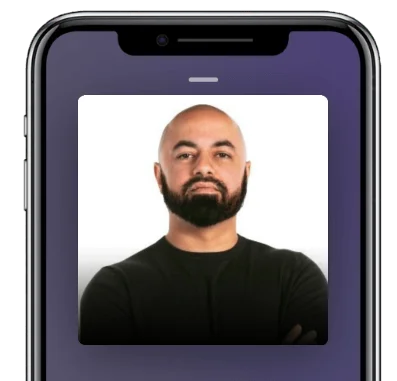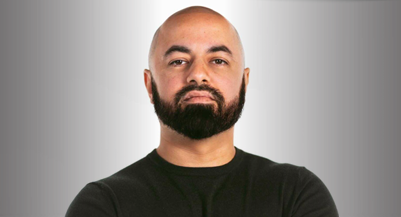In this Episode
- [00:30]Stephan introduces Kashif Khan, CEO of The DNA Company. He’s also a speaker at the Biohacking Congress in Miami on October 16-17.
- [05:05]Kashif shares how his company turns insights from DNA results into instructions for his clients.
- [11:23]How health issues accumulate and cause significant problems in the long run.
- [16:00]What sets The DNA Company apart from other similar companies.
- [20:15]Kashif shares an example of how genes affect sleep.
- [24:39]Why the vegan diet cannot be followed by everybody.
- [29:17]Kashif shares the experience of Kristin, CEO of Autism Hope Alliance, and her son with The DNA Company’s services.
- [35:09]Kashif expounds on the extensive services they offer to people.
- [41:24]Stephan explains The Fogg Behavior Model by BJ Fogg.
- [46:16]$50 discount when you purchase the 360 report from The DNA Company’s website.
- [56:08]Go to Kashif Khan’s website to know more about their DNA tests and services. Then, follow him on LinkedIn and Twitter to learn more about the latest update from his company.
Kashif, it’s so great to have you on the show.
It’s awesome to be here. Thank you.
I’m impressed that you have Dave Asprey as an investor—he’s a client of mine—and BJ Fogg as an advisor. BJ was a guest. He’s a friend of mine. He has guested on this podcast. It’s a small world.
Dave, I chased him around at a conference. I literally found out where he was going to be, I flew there, and I said, we need him to know what we do. This is early days. I literally followed him around with a tube in my hand saying, “Please spit in this, sir, if you can.” He said, “Who are you and why are you following me?”
Eventually, he did the test. He said, “Now I understand why you’re working so hard.” He had done every DNA test in the world at that point. We can get into it, but he was blown away and he ended up becoming an investor because he loved what we did so much.
Wow. I’ve done multiple DNA tests myself. I’ve done not only 23andMe and ancestry.com, but also a full genomic sequencing. This was in preparation for IVF for our baby who’s almost two now. I also had Health Nucleus, which does a genomic test and 95+% of your genome sequence. That’s apparently pretty unusual even amongst genome sequencing companies, so I’m curious, what is the difference-maker for you?
How much action do we derive from each of those 22,000 genes?
We’ve done the opposite. The belief has been that more is better. If I can sequence the entire genome, I’m going to learn a lot, which potentially makes sense because you’ve got 22,000 genes in your body to decode. But how much action do we actually derive from each of those 22,000 genes?
What we said is the way the body works is not 22,000 independent genes doing 22,000 independent functions. We already understand biochemistry. We understand the cardiovascular system, the endocrine system, mood and behavior, and what’s going on with neurochemicals firing. We really need to focus there if we’re going to solve the big problems.
What you described, for example, a perfect example with IVF. You’re looking for a very specific thing that solves a very specific genetic problem. Genetic companies have done a really good job of that—sickle cell syndrome, fertility issues, et cetera. They’re hardcore diagnostic tests that drill straight into a problem, give you an answer, and things become very black and white.
Meanwhile, that’s a very small part of our healthcare burden. Chronic disease, 90% of what we spend our money on and get pain from is the bulk. Literally, the Center for Disease Control says it’s 90%. Genetics has never touched that because there’s no direct I’m born with type 2 diabetes. I’m born with a cholesterol problem. These are things that happen over time. You know better than anyone. You adopt them from the mistakes you make, the wrong choices.
Our thinking is how do we bring this full genome scanning down to 50, 100 genes that are actually actionable where if I were to focus there, I could prevent diabetes, cholesterolemia, Alzheimer’s, dementia, all the big problems, female hormone issues, menopause problems, all that stuff?
This is what we’ve done in what you mentioned. By studying the 6000 people one by one, we’ve understood when a DNA test says, you have an 80% chance of Alzheimer’s, okay, well, am I 80% or am I 20%? Really all you gave me was anxiety.
The science of genetics is all focused on understanding genes. It's not about understanding biochemistry, people, humans, and illness. It's about the genes or what the genes are doing. Share on XWhy did the people with the same genetic profile, 80% of them got it and 20% didn’t? That’s what we focus on. What were the environment, nutrition, and lifestyle choices of the 20% that didn’t get sick with the exact same genetic profile?
That’s where we took it from insights to instruction. We now understand, okay, if you had that suboptimal genetic profile, you’re still not 100% guaranteed to have an issue until you do the wrong things that that profile can’t cope with. That’s what we unlocked. It’s the ability to say, if you’re sick, let’s reverse it. Let’s stop treating it. If you’re not sick, let’s prevent it because we know why it’s going to happen. That’s what we did.
In your bio, it says that this study was the largest of its kind in the world. Are there others that are being worked on now to make yours the second largest?
The thing is that genetic companies don’t think this way. If you look at any of the investor presentations, any of their websites even, some of the biggest genetic companies in the world, right on their websites, it says, hey, we deal with this cardiovascular problem. This is 4% of cardiovascular, 96% is lifestyle choices. They’re saying right on their website that we don’t even believe we can do anything here.
The thing is that the science of genetics is all focused on understanding genes. It’s not about understanding biochemistry, people, humans, and illness. It’s about the genes or what are the genes doing?
Yes, there are other studies like this out there, but only focusing on one problem at a time, saying let’s take 200 Icelandic people and figure out why they have an obesity problem. Very specific target because what is the goal? What drug can I make?
That’s the goal, personalized medicine. I want to know what drug I can make. It’s not about how I teach people why they actually get cholesterol problems and how they can reverse or prevent them. In terms of even how we think, to begin with, it’s so different that we’re going in a completely different direction.
We took it from insights to instruction.
Interesting. What are some success stories that you’re allowed to share with our listeners?
Going back to what I just said, cholesterol really helps paint the picture of genetics versus functional genomics. Genetics is I see this gene, you have a variation of it, a SNP, a spelling mistake in the gene, which now puts you in the 60% bucket of risk for cholesterol issues. That’s a potential outcome you could have in a DNA test.
Now, you said, okay, I guess it’s more likely inherited. My parents had it, I’m going to have it too. It’s taken for granted that this thing is just more likely to happen. What’s not understood is why does it happen? Why did 60% get it and 40% didn’t?
We start there and say, cholesterolemia isn’t a disease you’re born with. Why does it happen? We have to take a step back and say cholesterol itself isn’t the problem. If you look at the 60% who are more likely, they typically had a weaker endothelial lining.
Heart disease typically doesn’t happen in the heart. It usually happens in the arteries around the heart. They get calcified, they get blocked, they get cholesterol buildup, et cetera, and then boom, heart attack. The heart is still pumping until that moment.
What we find in those people is the endothelial lining, that inner lining of the artery where the blood actually flows and touches, there are different versions—stainless steel, somewhat robust, and then paper-thin. If you have the paper-thin version, which is genetically predeterminable, most reports, as I told you, will just put you in that bucket that’s clinically studied, oh, these people got more heart disease.
Why did they get it? Because that endothelial is more prone to inflammation. Because it’s so weak, but what would then cause inflammation, which gives you the 60% or the 40%? Some of those people did too much cardiovascular exercise and exposed themselves to oxidants. The process of going through heavy cardiovascular output makes you breathe more oxygen, produce more oxygens. Some people can cope. Some people can’t.
Cholesterol helps paint the picture of genetics versus functional genomics.
Being exposed to chemicals, working around paints, being in construction, golfing too much, breathing in pesticides for three, four hours at a time several days a week. Many, many sources of why I would get inflammation here.
It didn’t even occur to me about golf being a hazard to your health.
Imagine, what does it take to make that course so beautiful? It’s the heavy use of chemicals. Some people, when they finish golfing, have brain fog and are tired the next day. Why does that happen? Because in the next step, we’ve understood that somebody may have the weakened endothelial lining, but guess what? Your detox system is meant to clear this stuff, so it shouldn’t matter.
Glutathionylation, methylation are the processes that help you support those toxic insults, but then guess what? Again, people have different versions genetically of their capacity to detox. You could actually be completely missing the key important detox genes. Forget about a SNP or variation, you might not even have it. It’s one of the few genes where you can have what’s called a copy number variation. I literally don’t have the gene. I don’t have the instructions.
Now, imagine that person who has that weak or poor paper-thin endothelial lining, that inner lining of the artery wall. They also had a bad detox system where when they breathe in those chemicals, the paints, or the mold, or there’s too much oxidative stress on them. It’s just free-flowing in the blood because they’re not getting rid of it. They’re then causing damage, scratches, abrasions to this endothelial lining, which causes it to get inflamed for which the body is supposed to respond with an anti-inflammatory response.
Then again, guess what? Some people have a weak genetic capacity to deal with methylation or anti-inflammatory response. What is the body’s response to inflammation in the arterial system in the endothelial? It’s to actually deploy cholesterol as a hormone to mitigate and reduce inflammation.
So if you do the wrong thing for 20, 25 years, on day one, it’s not a problem. Day 500, maybe there’s a bit of a problem. Day 5000, when you’re a few years into it, you start crossing that threshold where there’s so much cholesterol, where the doctor starts to see that my cholesterol levels are high. They start giving me a pill. Meanwhile, what was actually happening? My body is deploying cholesterol to try to reduce the inflammation that I’m causing by my poor and mismatched environment, nutrition, and lifestyle choices.
People have different versions genetically of their capacity to detox.
This is what we’ve mapped out by studying people, to say, why did it even happen? Okay, you’re taking a pill for cholesterol? Why did your body decide to put the cholesterol there in the first place? Let’s deal with that.
Those things are all genetic. We can test a five-year-old kid and tell you what their risks are starting off now that we’ve understood by studying these people. That’s where we want things to be.
Wow. One thing I understand now that I didn’t understand early on in my life was that bad cholesterol is potentially bigger and more buoyant for some people, and small, dense, and wedging into the epithelial lining much more easily in some people.
Therefore, it depends on the size of your bad cholesterol and the density of it—which they can check with NMR—to determine whether those numbers that you’re getting, as far as bad cholesterol versus good cholesterol, are something to be concerned about or not. But you’ve taken this to a whole other level though.
First of all, that’s absolutely true. You can actually go get tested for this. This is becoming quite commonplace in functional medicine at least, not mainstream but functional. Here’s a thing that’s a bit of a better scan. It’s not just about cholesterol. What kind of cholesterol?
What happens with cholesterol is when it emits toxicity, it actually hardens so that the HDL, LDL process extends the cholesterol and brings it back, which is how it works. It doesn’t come back because when it meets its toxicity, it actually hardens and gets deposited. Now, to what degree does it affect the endothelial? Again, it goes back to what size is the molecule?
If you start to layer on all these different insights, you can become so precise and you can literally predict that if you do this, this, and this, here’s the day you’re getting a cholesterol issue. If you don’t do this, this, and this, you will never have a cholesterol issue.
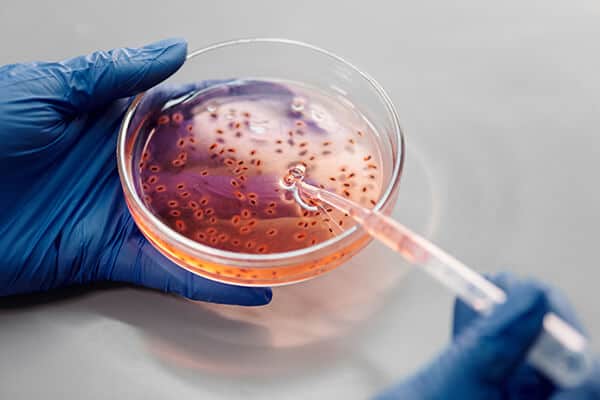
That personalization is really the key to what we’re trying to drive. Take these insights. No more trial and error. No more one size fits all, which we understand to get to where we are in medicine today, we needed to go through that. We needed to develop science. We needed to go through this trial and error stuff to see what works, but I guess technology’s better now.
We’re ahead of that in technology, so let’s start adapting it. This is exactly it. Keep stacking those personalization insights, not just DNA. It’s also a microbiome. It’s also the scans like you’re talking about. It’s the doppler and staying ahead of things.
DNA is who you are born as. It’s literally the instruction manual. All these other tests are a stamp in time, where are you today, which tells you where you need to focus—the red flags. You need both.
Earlier on in our conversation, you said that those companies that give you the full genomic testing, it’s too much and it’s not actionable enough. They’re not connecting all the dots and leading you to make behavior change choices to then rectify these situations.
There’s one company that comes to mind. Maybe it’s a competitor. Maybe it’s more coopetition, but it’s Simplified Genetics. I had Kurt Johnsen, the founder, on this podcast a few years ago. He talked about, they only check a very small number of genes and then they make some recommendations based on the analysis of those genes.
For example, the way that you should exercise and the way you should eat is based on your genetics, which they figure out through this test. Then, they recommend how much aerobic versus anaerobic exercise to do. They recommend what mix of carbs with proteins and so forth you should have based on your certain genes that they’re checking. How does that fit into what you guys are up to at The DNA Company?
Our thinking is how do we bring complete genome scanning down to 100 actionable genes. Then, if you were to focus there, you could prevent diabetes, cholesterolemia, Alzheimer's, dementia, and all the big problems. Share on XI’m not familiar with that company, but it sounds like they’re doing the right thing. What was the promise of DNA? That we’re going to unlock this thing inside of us—literally our instruction manual—and sickness should disappear.
But that’s like this high pie in the sky that we thought we’re going to get. It went in the direction of, we found that now that we’ve unlocked the genome, there are problems that are genetic-based, again going back to sickle cell syndrome.
For some forms of childhood development like autism, for example, there’s a switch that you’re looking for to turn on or off, that magic gene that if we find it, we can turn it off with a therapeutic and that problem is now resolved.
The science went in that direction. The way that the other gentleman you’re talking about though was far and few between because the funding and the momentum all went down this path of let’s build drugs that solve specific problems.
That’s why even the biggest consumer tests, their true customer isn’t really the patient. It’s about Glaxo or Pfizer buying the data in the background. Their tests are designed not for how do I give my client the best output? It’s how do I collect the most data? I want to stack as many genes as possible because that’s what Glaxo literally is asking for, as opposed to how do I mind this to give you the most information from what you’ve given me, which is your genetic code?
They’re going in the right direction. This is where we find to speak to categories, yes to diet and nutrition. Diet and nutrition are not just about what I eat in terms of carbs, fats, micronutrients, and macronutrients, which is all true. You can find that from your DNA.
Their tests are designed not for how do I give my client the best output? It’s how do I collect the most data?
How do I metabolize fats and carbs? Is the keto diet going to kill me (as an example) because I don’t metabolize fats well? We have people like that. The first month, they feel amazing. Then, two months into it, they’re kind of sluggish and groggy. They can’t figure out what’s going on.
Vegans, we found that there’s one gene responsible for breaking down your main protein sources like beans, lentils, or legumes on a vegetarian diet and there are different versions. I can’t tell you how many vegans who are suffering we’ve had to tell you, you can’t eat like this. It’s not designed for you, but there are others that it’s perfectly suited for them.
Diet and nutrition is a big one, but it’s also about the brain. How do I even perceive food? Am I an addict? Am I a binger? Do I graze every time I walk back by the pantry? Do I lean on food as a coping mechanism because of stress? These things are all predetermined.
Then, that takes us to mood and behavior, which is the second big category. How is my brain wired? If I have your DNA, without speaking a word to you, I can tell you how you deal with emotion and stress. Do I have to be careful because you’re going to be irritable? Do you prefer to be very frank and straightforward because your brain just moves very quickly? Are you going to experience PTSD and trauma if I cause you pain? All this is genetically predetermined. Imagine knowing that not only about yourself, but about your team, your family, your spouse, et cetera.
The third one is fitness and hormones. Fitness, cardio, weight training, and all that but also body development. How many women are struggling with it doesn’t matter what I eat and how I exercise, I just can’t lose this weight. That sounds like it’s more hormones than anything else. If you understood your genetics, you would understand how to actually burn fat, how to actually put on muscle, and what time of day even to exercise. It’s all predetermined genetically.
Then, we dive deep into cardiovascular because we believe that’s the number one killer first of all, but it’s also the lowest-hanging fruit in terms of how to very easily prevent and reverse diseases—cholesterolemia diabetes, dementia, stroke, Alzheimer’s, and all those things we bundle up into arterial or cardiovascular health. Everything has to do with the vasculature.
Diet and nutrition are not just about what you eat in terms of carbs, fats, micronutrients, and macronutrients. You can find that from your DNA.
Then, we look at immunity and detox. There are six in total, by the way. We look at immunity and detox, which is really your anti-inflammatory response. If you were to have any load on you, whether it’s an illness, virus, Lyme disease, autism, whatever it is, to what degree do you express it? Why do some people get Lyme disease and don’t even know? Some are in bed with the flu and some, for six months, just can’t get around. They can’t do anything other than stay in bed. It’s that ability to cope and fight. It’s not the virus itself with different versions. It’s how does my body deal with it?
The last one is sleep. This is a huge issue. Now, I think 50% of Americans don’t sleep properly. Either I can’t fall asleep, I wake up in the middle of the night after three hours, or I sleep eight hours but I wake up feeling like I didn’t sleep at all. Those are three different problems. Genetically, we’ve understood why.
Here’s a simple example. I can’t fall asleep. There’s a gene called BDNF, brain-derived neurotrophic factor. Its primary purpose is to produce BDNF, which is a known substance that people talk about in terms of mood. Its primary purpose is actually concussion. It drives neuroplasticity, so it helps you recover from concussions quickly because your neuroplasticity is just so much more aggressive in its capacity.
It also deals with mood. The people that are called the “drama queens”—that everything means a lot, they overreact, they’re people that you know will slam a door, yell, or walk out of a meeting—typically have the low version of BDNF. That same gene also determines how well you cope with circadian rhythm. Does your body know that it’s nighttime? Do you need to teach your body that it’s time to sleep as opposed to just intuitively knowing?
There are people that just lie down and within minutes, they’re asleep. For that person, we can now add a personalized level and say, you need to turn your laptop off two hours before going to sleep. You need to turn your pot lights down. You need to not eat stimulatory foods. You need to not be exposed to stress or stimulation. There’s a whole bunch of things we can tell them that without taking a pill, they will actually sleep better because their body just needs to know it’s sleepy time.
Those are the six big buckets that we dwell in. There are so many more, but these are the six that we feel everybody needs to go to, so we put them in the core product. But beyond that, you name a chronic issue, where it’s fibromyalgia, fertility, as you mentioned, breast cancer, et cetera, there are insights in all of this stuff.
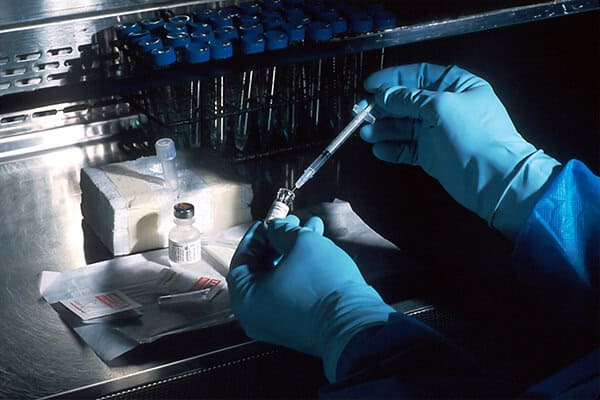
Fascinating. For me, I’m not getting great sleep scores with my Ōura Ring. It’s saying I’m getting maybe 1 1/2 hours of deep sleep, 1 hour of REM sleep a night, and a total sleep of maybe 6, 7 hours. My score two days ago was 52. It was terrible.
Today, it was a whopping 70 something, which is better than a lot of days, but I’ve almost become numb to it because the scores are so terrible. I’m not excited to check my sleep score. It’s so rare that I see the little icon of the crown. I can’t remember the last time I saw that one.
There are new versions of our reports the way we did because if I just tell you you’re more likely to have a sleep issue, these are the reasons, and here are the genes, again, all that leaves you with that kind of experience is I’m losing motivation. I really don’t want to wear the ring anymore. As opposed to now that we’ve understood what your personal issues are, here’s what you should do about it.
We’re actually speaking now to Ōura Ring because we said, okay, you’re helping people manage, guide, and coach themselves through how important it is to even sleep, to begin with, first of all. Five years ago, nobody even talked about it. Now, how do I track? Okay, now that I’ve tracked a person like you, I’ve understood there’s a problem, you still don’t know what’s going wrong. You know there’s something wrong, but you don’t know what to fix.
That’s where the genetics can come in and say, at least you’ve triaged and said that now I actually know I need to do this deep dive. I have a problem that doesn’t seem to be going away. Let’s work on what do I do? What do I do starts with what’s wrong? What’s wrong starts with what are my suboptimal genetically? Then, you can determine the next best step to actually make this work and your sleep scores go through the roof. We’ve done this with a lot of patients, more bespoke, hands-on, and we’re now talking to these guys about putting a program together formally.
Very cool. I’m excited for that to come out.
That’s going to be awesome.
You have mentioned a few minutes ago vegans and how you may or may not be genetically capable of being vegan depending on your genetic makeup. How does that impact somebody like myself who wants to be vegan for animal rights and cruelty reasons and not just because of health?
If you're sick, let's reverse it instead of just treating it. If you're not sick, let's prevent it because we know why it's going to happen. Share on XYes, exactly. If you know the what and the why, then you know what to do about it. I’ve had this conversation with my own cousin who is a vegan and has the same concerns as you. I said, there’s a question of health where you got to do what your DNA, what all these tests are saying. Then there’s the question of social, moral responsibility, and lifestyle decisions. That’s where you have to blend in with other factors. It goes beyond just the output of a report.
In this conversation with him, I showed him, here are the various problems you have. I’m not telling you to stop being a vegan. I’m telling you you have to address each one of these problems because this is what the vegan lifestyle is causing you, the net effect. Now that you know, you can deal with them each independently in a different way. It doesn’t have to be a diet shift. As an example, the thing that I mentioned, the FAT2 gene. It’s one of your methylation genes, an anti-inflammatory response.
How many vegans complain about bloating and gassiness from their food? It’s this one gene that creates the enzyme that actually breaks down beans, lentils, legumes, chickpeas. Me personally, if I eat hummus for lunch, I can’t eat dinner that day because I get so bloated, but I love it. I love hummus. I just can’t eat it because I get bloated because I also have a weak version of FAT2.
That’s one. Knowing that you have to adjust your protein source. You have to say, okay, I cannot have my proteins and I am a vegan, so I have to work on maybe tempeh or something else that isn’t that.
The second thing is muscle retention. We find that a lot of people that are vegan are nice, slim, and look healthy, but some people also want to be on social media, showing how good they look, et cetera.
Six-pack abs.
Yeah. Or even an eight-pack if you get there. I’d say the question of, am I getting the micronutrients for my vegan diet which I need? Then, some people say, okay, I’m not eating meat, so I’m going to take a B12 supplement. Well, guess what? Genetically, there are some people that take a B12 supplement, swallow it, and just pee it out.
Did your ancestors eat beef or did they eat goats? If your ancestors ate beef, then they probably do metabolize and absorb B12 from the gut. If they ate more goat and sheep—which if you go back a couple 100 years was the majority of people. Cows were typically not killed because it’s too expensive. It was the source of dairy. Very few groups actually ate beef. They ate more goat and lamb as their red meat source.
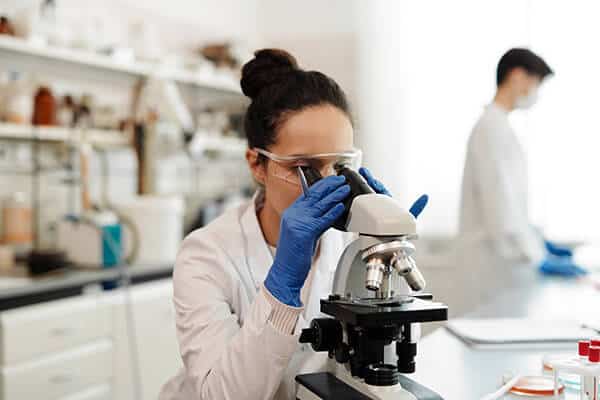
That is actually broken down and absorbed right in your mouth under the tongue like a sublingual tablet. So if you’re taking the wrong version of B12 as a vegan, it’s not a question of, hey, you need to eat meat to get B12. You need to make sure you’re taking the right version of the supplement.
Even then, there are different versions of B12. There’s a methylated version and a non-methylated version. Which one you actually need is a very important consideration for a vegan because B12 is your core anti-inflammatory macronutrient. For that person that has that weakened endothelial lining that doesn’t have enough B12, it’s not just that I can’t put on muscle or whatever the other issues are. It’s that I’m actually going to have a heart attack because I have no anti-inflammatory response. My B complex is what supports that.
This is the MTHFR gene that you’re talking about?
Actually, there are two genes. MTHFR is your main methylation gene. This is another thing we do very uniquely, which we didn’t mention earlier. Gene by gene interpretation will only ever get you to this 70% chance of this probability.
You have to look at what we call pathway interpretation, meaning methylation isn’t a bunch of independent genes. It’s a system. We understand step by step what happens in the metabolization of B vitamins and the micronutrients using methylation, so we’ve built a map that mirrors that.
You could have the worst MTHFR and the best everything else upstream and downstream, and you have no problem. We actually have a parent who has an autistic child who was told it’s not possible for your child to be autistic because they have the good MTHFR gene, what they call the autism gene. But everything else was sub-optima. They weren’t absorbing their B Vitamins.
So we literally just switched their B complex and to a sublingual, this very specific version, and their child completely changed. It was a completely different gene and this is actually the CEO of Autism Hope Alliance who then got us into Autism Hope Alliance so that every parent needs to know this.
That is so important. Just a little piece that you shared can change people’s lives who are listening and have autistic family members.
You need to make sure you’re taking the right version of the supplement.
Just this example, Kristin, her son, she’s the CEO of Autism Hope Alliance. It was a two-hour regimen to get her son from out of bed to ready in the morning. She said it completely disrupted her life that she’d have to go to work late and all the stuff. She went from that to her son making his own breakfast, tying his own shoelaces, and just doing his thing in a normal time in a matter of weeks.
She was just about to send him for stem cell treatment in South America because she didn’t know what else to do. He didn’t need it, all he needed was the right B complex, which he did not have the genetic capacity to absorb. At some point down the line, he was probably exposed to the wrong toxins that caused him neuroinflammation that he could not cope with that led to this damage, literally.
He wasn’t born with a thing called autism. He was exposed to the wrong load (environmentally) at the wrong time, for which he was not genetically designed to cope with. And at his young age that led to neuroinflammation.
That exposure could be in any number of different forms that may or may not be a vaccine. It may or may not be something in the air that the child is breathing. It could be something that they eat, it could end up consuming heavy metals perhaps in their fish.
It could be anything, it’s just the wrong exposure at the wrong time. Vaccines, as an example, every pharma company argues, we’ve tested this up, down, left, right, and center, the vaccine does not cause autism, which is true. The parents also say, that’s the day my kid changed, which is also true. So what’s happening?
What’s happening is you can test the active molecule as much as you want, it’s true that it doesn’t cause disease. But they’re only looking for 20% of kids that are under this autism umbrella (the spectrum) are actually born with something. This is according to our numbers from what we’ve seen. About 20% have something they’re born with it. That’s what the pharma companies are referring to as, we don’t cause that. It’s true, they’re born with that thing.
Eighty percent, the much bigger number, were not born with a problem. They adopted something over time because their detox pathway was horrible, they couldn’t clear the load. The anti-inflammatory response was horrible, and they’re at an age where neurologically, they are highly susceptible.
It could be anything. It’s just the wrong exposure at the wrong time.
These kids, when they get the vaccine, the active molecule doesn’t cause a problem but it’s all the heavy metals in that serum that you’re injecting two-three of these things at the same time. And all of a sudden they don’t have the ability to clear any of those heavy metals, wreaking havoc on the neurological system, leading to literally brain damage, which then gets put into the bucket of autism because they expressed the same behaviors.
That’s where the argument that both sides are correct, but we now have a better idea of what’s actually going on, so let’s deal with it better, at least spread them out, at least have detox support with the vaccine, something along those lines.
One point I want to make is in case our listener doesn’t understand how vaccines work. It’s important to have an adjuvant into the serum so that it creates an immune response because just injecting either deactivated virus or portions of virus-like the inactive part of a code of a virus isn’t going to generate the immune response required without the adjuvant.
Yes, exactly. The problem is you need it, but it’s not the vaccine itself, it’s not the source, it’s how it’s made, and every parent is right that that’s the day my kid changed. You can’t argue with that. That’s just an example of how we’ve dealt with things here. But sorry, could you go back to your question?
That was such an important sidebar, thank you for humoring me on that one.
The other thing I talked to my cousin about was his body, he just melted away. He was like yourself, fit, but he was just too thin. As he was aging I was saying, we know that it’s important for longevity and vitality to have a certain amount of muscle, you need it. And so in his case, again, when you get the wrong micronutrients or not enough of them supplementing properly, hormonally he was in a very unique place where he needed to work out a lot more because he bled all of his testosterones very quickly. We had to work on that.
To metabolize carbs, you first need to break down the carbs into glucose to use as fuel.
Also, it wasn’t so much about go eat meat. It was about, okay, let’s supplement your lifestyle choice, your vegan choice with the right exercise so that you’re actually retaining the muscle. And then the last thing that I talked to him about—this was a few years ago, it’s a little easier now. But a few years ago, as a vegan, it was a carb-heavy diet because he didn’t have many options. That was another thing I had to deal with him to show him that to metabolize carbs, you first need to break down the carbs into glucose to use as fuel.
He did a horrible job of that genetically. The gene that he does have the worst version. You then needed to trigger an insulin response as part of that process, he had the worst version of that so his insulin resistance was horrible. That combination, if you’re going to be on a carb-heavy diet, you’re guaranteed to get type 2 diabetes. It’s literally a guarantee, that’s where it comes from. So we had to deal with that.
Again, I didn’t say you need to go eat meat, we had to say let’s adjust and reduce the carbs, and let’s also not mix them with fats because he was also a poor fat metabolizer, which is part of the reason he went on a vegan diet. We did a number of things, and this is where it’s not so much about vegan-not vegan, cardio-not cardio. It’s about, okay, I have a goal, and I have certain wiring. How do I get there? Take the trial and error out, take the one-size-fits-all out. Tell me how I get to where I want to be?
It sounds like your company provides more than just a report. It sounds like coaching and ongoing support as you make these behavior changes, is that right?
That’s the evolution of what people need from us. It used to be, here’s this highly scientific report, which was very comprehensive and if I showed it to you, you would probably get vertigo and fall over because it was so complex. But that was what we needed in terms of science to interpret and consult somebody, meaning that we would sit down for an hour. Clinically, those 6000 people we talked about and interpreted that data.
We said, okay, that’s great. But how are we going to train armies and thousands of people to go do this en masse so that everybody benefits from this, not just the people that can see us? So we had to make it easy to use, which is these new reports that first of all, speak to the phenotype. Your genes are your genotype. Here’s your list of genes, that’s your genotype.
What does that mean? My nose is this big. I have anxiety. I can’t gain weight. That’s your phenotype. What are the genes equal? So we speak to the phenotype. Our reports don’t say this gene is this version, it says anxiety, weight loss, card metabolization. People want to know what’s wrong with me and how do I fix it? I think you can tell me about the genes, that’s also great, but first, tell me what’s going on.
We did that and then we said this is still not enough because now that we’ve identified and kind wowed people in terms of, oh, that’s why this was happening. They want to know how to fix it. And how do I fix it part was Dr. BJ Fogg. He came in and said, “We already know how to fix it. But how do you actually get people to do those things?” It’s that behavior changes, those tiny habits he always talked about, and making things so easy.
When people read our reports now, literally the feedback we get is, oh, I already knew that. Because it’s just so easy, I was able to do it. Have you been doing this for the last…? Are you sick? Okay, you didn’t know it and you weren’t doing it. So we’re just making it easy for you to do it. But that’s how easy BJ makes things to sort of digest.
Personalization is the key. Let's keep stacking insights to remove one-size-fits-all and be precise in making functionally-driven decisions about your health. Share on XOne thing I want to say about BJ’s research and his approach that doesn’t get enough emphasis and it’s just fabulous. He coined the term for this particular emotion that didn’t have a name before and he calls it “shine.” That’s that feeling of success when you are making progress. That is a feeling.
If you have an app or a tool that does not inject shine into the equation, it’s going to fail. I’ll give you a specific example. I used to use an app on my iPhone called the Way of Life app. The Way of Life allowed me to keep track of and build a chain of success. Okay, I can put a green check in this box for this day. So I started adding more things because I was increasing the length of the chain.
I don’t know if you heard the story before but Seinfeld every day that he would write a joke, he would put an X on his calendar on the wall. He would not feel great if he missed a day because he’d break the chain and he has to start all over building a new chain. And so he would keep these long chains. That’s what the Way of Life app is based on that concept. It’s red if you didn’t do it. It’s green if you made it. So I would get all these green days in a row and I’d feel very successful. I’d feel shine.
What the app didn’t do was handle the misses where I fell off the wagon. It’s theoretically easy for me to jump back on the wagon, but from a mental kind of head game standpoint, I would feel like a failure, I just went 30 days in a row and I just killed it. I just destroyed my streak. Now, I start all over again, that sucks. I don’t even open the app for a week, then it becomes two weeks, and then it’s three.
So where’s the shine to keep people on the wagon? And then if they fall off to incentivize them to get back on the wagon. That’s really, really crucial.
So we didn’t know that word, but we intuitively were led to that it was a piece that was needed. Meaning, okay, we’ve told you what’s wrong. Here’s your DNA. We’ve told you what to do about it, and we’ve even told you how to do it—the behavioral changes. But where’s that trigger? Like you said, where’s the shine?
And so what we’ve brought on exactly, as he said, these health coaches which was never a part of our business. It’s a biotech science company, you would think, what does the health coach know about DNA? It’s even the entitlement of the scientists. Why are we working with health coaches? Show me your Ph.D. So we said, no, they have the skill that we don’t have, which is to draw people towards their goals, to help them manage and adapt these small habits and changes, and feel rewarded. At the end of the day when they get there, here’s the check box, we got there, we completed this. Now let’s go work on something else.
So that’s our sort of solution to that answer is, we brought these coaches on because we understood that everybody that gets through the process, it’s always there calling saying, how do I get more? How do I talk to somebody? How do I, how do I, how do I? They want somebody to concierge, handhold them through getting better.
If you understood your genetics, you would understand how to burn fat, put on muscle, and what time of day to exercise. Share on XThat’s the end of that tunnel is the shine. That’s the reward of I did it, I sleep better now. We actually had that a few weeks ago. A friend of mine, I actually sent him our reports. I said, “Take a look at this. We already had his DNA,” and so I said, ”Look at our newest reports and just tell me what you think. We’re looking for feedback.” And he said, “Wow, I sleep now.” “I didn’t even know you had a sleeping issue.” He said, “I didn’t know either.” He said, “I didn’t realize that’s why I feel so screwed up all the time.”
Anyway, it was identified, he read the report, he started making tiny changes like turning off his blue light on his phone, closing his laptop, putting on the light filter glasses, and not doing his work until five minutes before sleep. All of a sudden he was sleeping properly.
Awesome.
There was that coaching trigger to make sure he actually did those things. So he’s putting it all together. You’re right on the money, but that’s what people need.
Yeah, because the prescription is one thing. And if you have enough motivation, what’s his formula? BJ’s formula that has motivation and I think it stands for what?
I’m actually not sure, to be honest.
BJ’s Behavioral Model, The Fogg Behavior Model has Behavior B=MAP—Motivation x Ability x Prompt—and you could just power through stuff, you have really high motivation. You don’t have to have as much an ability or the prompt, and you can just power through it.
One thing that I’m in the midst of doing is a metabolic reset. It’s a 45-day metabolic reset. I may be able to get it down to 30 days because it’s really not fun, I’m looking forward to finishing this thing. There are no carbs at all, no oils, and just 600–700 calories of protein in an eight-hour window, twice a day, so 11 AM and then 6 PM, 7 PM. Four ounces of veggies, 4 ounces of fruits, and then some free veggies as well, that are mostly water-based, I don’t have to weigh.
So I do that every day and I’m about 10 days into it. It is really difficult and my blood sugar is not in range, it’s low a lot. I know I need to do something different. I’m getting coaching from Sachin Patel who was a guest on this podcast a while back. But I’m concerned, I’m in the red. It’s 3.7 all the way down to 3.0. It’s not at the usual point.
Sachin actually works with us, he’s been a huge supporter for us.
I love Sachin.
He’s awesome. He’s one of the best guys out there in functional medicine.
We can ask you ten questions and figure out what it is, which genetically we can pinpoint and say, here’s what’s going on. This is what you need to do.
He’s telling me to go get some fresh air, get some sunlight, take my shirt off in the sun, and get some light exercise. I haven’t been exercising as much other than just a little bit of walking. But not overdoing it because I’m not supposed to go hit the gym or whatever while I’m on this metabolic reset. So, I’m curious to hear if you had any thoughts about maybe there might be a genetic component here that is why.
I’m going to give you one of a few things. By the way, Sachin actually uses our testing, so he may be able to incorporate it into your program if you need it, but there are multiple things. The first thing Sachin said about the sun and Vitamin D. Vitamin D is highly misunderstood.
You go to the doctor, take a blood test, hey, you have enough Vitamin D. Well, guess what? Vitamin D in the blood does not mean utilization of Vitamin D. There are three steps genetically. There’s drawing from the sun or food and putting it into the blood, some people do that okay, some people don’t. Then there’s transporting into the cell where it’s actually used, it’s an entirely separate genetic process. Then there’s actually binding it once it reaches a cell.
All three of those can have good, medium, and bad versions. And if you’re bad across the board, the way your relationship with Vitamin D is very different than it is for someone who’s good across the board. Vitamin D, of the 22,000 genes in your body, 2000 of them require Vitamin D to function.
Wow, and Vitamin D is essential to having COVID resilience as well.
And this is why it’s not quite understood. It’s considered your immunity gene because imagine if 10% of your trillions of cells and 10% of your biochemistry are just failing because this is one key that unlocks everything that is just not there. That’s one of the first things we usually go to that resolves so much.
My niece’s anxiety problem is gone because of Vitamin D. When did it start? When COVID started she was doing school at home and didn’t go outside anymore. It was literally just a lack of vitamin D. That was our problem and some hormonal issues layered on top of that. But that would be a place to start.
Then there’s just metabolic rate. There’s one gene that determines how quickly or slowly you metabolize. Also, how quickly and slowly you adjust when your body moves from this diet to that diet, et cetera. All the different sorts of cogs and wheels are being triggered. There are several things you would look at, and this is where we can probably predict what it is. We can ask you ten questions and figure out what it is, which genetically we can literally pinpoint and say, here’s what’s going on. This is what you need to do.
I think I need to do your test. I understand that you have a special offer for our listener and viewer. It’s at a special URL and you get a price discount. So do you want to share that with our listener?
Sure. We’re going to be at the Biohacking Conference. We connected through them and they suggested we should speak. Our community, I believe, we should all keep talking, getting tighter, and growing missions together.
In terms of your community, we said, since we’re coming on the show, let’s put something together for everybody. If you go to the website thednacompany.com/optimized and you purchase the 360 report, which is the core one we’ve been talking about, at check out you’ll see a $50 discount. That’s credited back to your show, you organized that for everybody, meaning because of this podcast, we’ve set that up. Otherwise, we don’t really discount.
So that’s thednacompany.com/optimized and you’ll see at checkout for a $50 discount. We hope that it means a lot more than the $50 discount that you really, truly change your life. That you get a lot more than that out of it, but you’re welcome to take advantage of that.
That’s awesome. And speaking of the Biohacking Congress that’s coming up in Miami on October 16th and 17th, there’s also a special offer code for that it’s HACK50, you get 50 percent off tickets either on-site or live stream. The website is biohackingcongress.com. You’re going to be speaking and some really amazing other speakers will be on the docket as well.
I’ll be there. Hopefully, you, listeners, will be there as well. I’ll see you Kashif at that event. One last thing. If our listener or viewer wants to learn more from you because you are a wealth of information and frankly wisdom, what’s the best way they can learn from you, follow you on social media? Do you have a blog, is there a podcast?
As a science company, we haven’t been outwardly promoting much. We just recently started. Our social media, we’ve just started posting a bunch of videos that are educating and people are going crazy. We just posted a video yesterday about video game addiction, why it actually happens, and what you can do about it.
Yeah, it was awesome. Just a huge pickup. I hardly have any followers, but there are thousands and thousands of people watching it because it just resonates with them. We’ll share the social media tags and all that and people can start to learn.
Awesome. Thank you, Kashif, and thank you, listeners. I hope that you make some behavior changes that change your life and your health. We’ll catch you in the next episode. I’m your host, Stephan Spencer, signing off.

